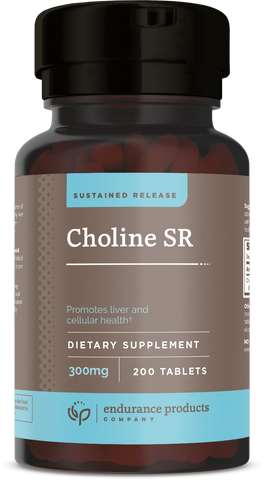We don’t hear much about choline, but researchers say we should. Without this nutrient, we couldn’t move or think properly because it’s essential for brain and nervous system functions, as well as other key body processes.
Yet, studies show that fewer than 10% of adults get enough daily choline to function at their best. How would you know if you’re in the majority? Here are some signs that you may need more choline.
Why We Might Not Get Enough Choline
Choline is in many common foods like fish, eggs, beans, beef, pork, and cruciferous vegetables.
Although several foods provide choline, few except caviar come close to meeting the recommended daily intake of 550 mg for men or 425 mg for women. (Pregnant and nursing women need more choline.)
For example, garbanzo beans (chickpeas) have more choline than most foods, but a half cup of them only has 18% of your daily needs. So, you’d need 2 ½ cups of chickpeas to get the recommended amount.
Your liver makes a small bit of choline, but the majority needed comes from food. A lack of choline can affect your memory, mood, thinking, and muscles.
Signs of low choline intake include:
Cognitive impairment: Choline is a building block for the neurotransmitter acetylcholine, which plays a critical role in cognitive function. Acetylcholine production decreases as we age. If you’re not getting enough choline, you may notice memory problems, poor concentration, brain fog, or difficulty learning something new.
Mood changes: Choline also helps regulate moods, so a deficiency can lead to mood swings, anxiety, or depression.
Fatigue: Because choline is important in energy metabolism, you might feel tired and sluggish if you’re not getting enough.
Muscle aches and weakness: Muscle aches and weakness may also point to a lack of choline because acetylcholine, mentioned above, is the chemical messenger between your nerves and muscles. Nerve pain and tingling may also result from a low choline intake.
Liver damage: You may not “feel” it, but a lack of choline can also lead to liver damage. Choline transports fats out of the liver to cells throughout the body, cleansing the liver so to speak. Choline helps keep cholesterol levels balanced. Fatty buildup in the liver can cause nausea, loss of appetite, and abdominal pain.
The importance of choline in the body, combined with reduced acetylcholine production as we age, has researchers focusing on its crucial role in protecting against cognitive decline.
Choline is not typically included in multi-vitamins. If you’re interested in supplementing your intake, Choline SR (sustained release) provides 300 mg of choline in a slow, steady release over 5-7 hours for optimal absorption.

